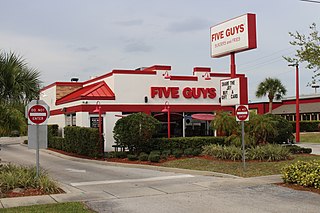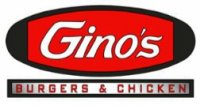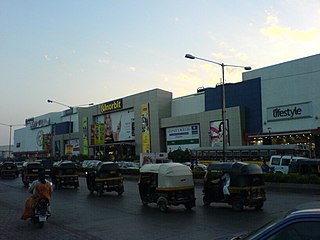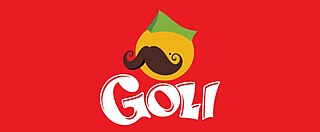
A fast-food restaurant, also known as a quick-service restaurant (QSR) within the industry, is a specific type of restaurant that serves fast-food cuisine and has minimal table service. The food served in fast-food restaurants is typically part of a "meat-sweet diet", offered from a limited menu, cooked in bulk in advance and kept hot, finished and packaged to order, and usually available for take away, though seating may be provided. Fast-food restaurants are typically part of a restaurant chain or franchise operation that provides standardized ingredients and/or partially prepared foods and supplies to each restaurant through controlled supply channels. The term "fast food" was recognized in a dictionary by Merriam–Webster in 1951.

Burger King Corporation is an American multinational chain of hamburger fast food restaurants. Headquartered in Miami-Dade County, Florida, the company was founded in 1953 as Insta-Burger King, a Jacksonville, Florida–based restaurant chain. After Insta-Burger King ran into financial difficulties, its two Miami-based franchisees David Edgerton (1927–2018) and James McLamore (1926–1996) purchased the company in 1959 and renamed it "Burger King". Over the next half-century, the company changed hands four times and its third set of owners, a partnership between TPG Capital, Bain Capital, and Goldman Sachs Capital Partners, took it public in 2002. In late 2010, 3G Capital of Brazil acquired a majority stake in the company in a deal valued at US$3.26 billion. The new owners promptly initiated a restructuring of the company to reverse its fortunes. 3G, along with its partner Berkshire Hathaway, eventually merged the company with the Canadian-based doughnut chain Tim Hortons under the auspices of a new Canadian-based parent company named Restaurant Brands International.

Vada pav, alternatively spelt wada pao, is a vegetarian fast food dish native to the Indian state of Maharashtra. The dish consists of a deep fried potato dumpling placed inside a bread bun (pav) sliced almost in half through the middle. It is generally accompanied with one or more chutneys and a green chili pepper. Although it originated as an affordable street food in Mumbai, it is now served in food stalls and restaurants across India. It is also called Bombay burger in keeping with its origins and its resemblance in physical form to a burger.

Pav bhaji is a street food dish from Mumbai, India consisting of a thick vegetable curry (bhaji) served with a soft bread roll (pav). It originated in the city of Mumbai, Maharashtra.

Five Guys Enterprises, LLC is an American fast food chain focused on hamburgers, hot dogs, and french fries. It is headquartered in Alexandria, Virginia.
The fast food industry in India has evolved with the changing lifestyles of the young Indian population. The variety of gastronomic preferences across the regions, hereditary or acquired, has brought about different modules across the country.

Carrols Restaurant Group, Inc. is an American franchisee company and is the largest Burger King franchisee in the world; Carrols owns and operates over 1,000+ Burger Kings, and 55 Popeyes restaurants. The company has operated Burger Kings since 1976 in locations across 23 U.S. states.

Gino's Hamburgers was a fast-food restaurant chain founded in Baltimore, Maryland by Baltimore Colts defensive end Gino Marchetti and running back Alan Ameche, along with their close friends Joe Campanella and Louis Fischer, in 1957. A new group of restaurants under the Gino's name, involving some of the principals of the original chain, was started in 2010.

Bun kebab or anda shami is a sandwich that originated in Pakistan, but is now popular all throughout the Indian subcontinent. Bun kebabs are a signature in Pakistani metro cities like Karachi and Lahore, but they can be found all over Pakistan. Bun Kebab vendors are scattered all across Karachi, vendors on Burns Road being particularly famous, and imitated by frozen bun kebabs sold in South Asian supermarkets across the world. In India, it is eaten as a regular street food, specifically, in the Indian cities of Bhopal, Lucknow, and Hyderabad; it is especially popular with Indian Muslims, the dish is eaten late-night during Ramadan. Bun kebabs are usually sold from roadside stalls, side street vendors, and fast food restaurants. They are also commonly known as anday wala burger. A ‘fried’ version of the bun kebab is popular in Lahore, known as ‘bun plaster’ due to copious amounts of butter and super tender or paste-like kebab mixture used in it. Bun kebabs are usually eaten as a main course or snack.
The majority of the locations of international fast-food restaurant chain Burger King are privately owned franchises. While the majority of franchisees are smaller operations, several have grown into major corporations in their own right. At the end of the company's fiscal year in 2015, Burger King reported it had more than 15,000 outlets in 84 countries; of these, approximately 50% are in the United States and 99.9% are privately owned and operated. The company locations employ more than 37,000 people who serve approximately 11.4 million customers daily.

HyperCity was a supermarket chain which operates 20 stores throughout India as of today. The main area of focus is food, home, and fashion.

Inorbit Mall is a subsidiary of K. Raheja Corporation which runs shopping malls in various parts of India. The first Inorbit Mall opened in 2004, in Malad, Mumbai. This is the fourth oldest shopping mall in Mumbai, from Infiniti Mall of Andheri, R Mall of Mulund, and Crossroads of South Mumbai. Inorbit Malls launched their second property in Vashi, Navi Mumbai, in October 2008; third in Cyberabad, Hyderabad in October 2009; fourth in Vadgaon Sheri, Pune in May 2011 which was closed down in November 2016; fifth in Whitefield, Bangalore on 15 September 2012 and sixth in Vadodara on 5 September 2013.

Goli Vada Pav is an Indian fast food restaurant chain originated from Mumbai, Maharashtra, India. It was founded in 2004 as a vada pav restaurant by Venkatesh Iyer. It currently operates in over 100 cities with over 300 stores.

Street food of Mumbai is the food sold by hawkers from portable market stalls in Mumbai. It is one of the characteristics of the city. The city is known for its distinctive street foods. Although street food is common all over India, street food in Mumbai is noted because people from all economic classes eat on the roadside almost round the clock and it is sometimes felt that the taste of street food is better than restaurants in the city. Many Mumbaikars like a small snack on the road in the evening. People of Mumbai cutting across barriers of class, religion, gender and ethnicity are passionate about street food. Street food vendors are credited by some for developing the city's food culture. Street food in Mumbai is relatively inexpensive as compared to restaurants and vendors tend to be clustered around crowded areas such as colleges and railway stations.
Jollibee Foods Corporation is a Filipino multinational company based in Pasig, Metro Manila, Philippines. JFC is the owner of the fast food brand Jollibee.
Burgs is an Indian fast food chain that mainly serves gourmet burgers including chicken, lamb, fish, prawn, beef and pork, as well as veggie burgers. It also serves ice cream shakes, iced tea, Orangina, B'lue and soft drinks. It is owned by Mumbai-based Sanjay Kilachand. The first Burgs outlet opened on Waterfield Road, Bandra, Mumbai on 22 March 2012. The decor in Burgs's outlets features plastic chairs, tables, bright lighting and colours.












